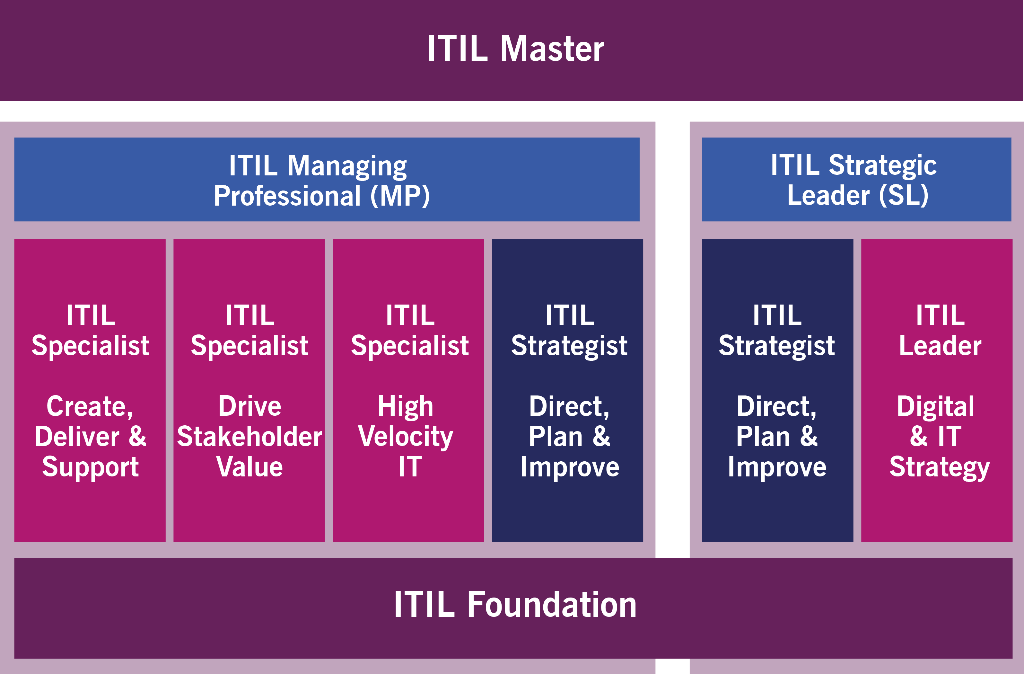February sale - up to 30% off training courses – use code: FEB26NZ
25 October 2018 | Updated on 12 February 2024
ITIL® 4 Updates
You may or may not have heard by now that in 2019, ITIL® is being updated, and ITIL 4 will come to life. But what does that mean for you? In this blog post, we will break down exactly what is happenin...
You may or may not have heard by now that in 2019, ITIL® is being updated, and ITIL 4 will come to life. But what does that mean for you? In this blog post, we will break down exactly what is happening with the ITIL qualifications and how these changes will affect both those who are, and are not, currently ITIL-certified.
Why is ITIL changing?
As our new technological era continues to develop and change at an ever-increasing rate, ITIL is changing to help businesses navigate this effectively. ITIL 4 is the latest iteration and provides a smooth transition from organisations’ current ways of working to a faster, more flexible and adaptive approach.
How is ITIL changing?
The modern technological age is marked by new and emerging technology, in fields including robotics, artificial intelligence and nanotechnology, and ITIL 4 offers a more practical and flexible basis to support organisations as they venture through these developments.
As such, ITIL 4 has greater emphasis on the business and technology world, how it works today and how it will work in the future with agile and DevOps methods. It will therefore be much more relevant to developers than how ITIL 3 and other previous versions were. Version 4 will also place a much greater emphasis on the importance of collaboration, transparency, automating (where possible) and working holistically when delivering products and services.
This new iteration of ITIL has been developed to be compatible with the existing certification scheme. It incorporates all the best parts from ITIL as it is known today and expands on these to a new level – supporting faster, quality and value-driven delivery for everyone.
Discover more about what ITIL 4 is.
Differences between ITIL 3 and ITIL 4
Following the update, the new ITIL 4 will comprise of two designations, Managing Professional and Strategic Leader, both of which begin with ITIL 4 Foundation. The new learning path will look like this:

Learn more about the ITIL 4 syllabus changes .
Benefits of ITIL 4
Training in ITIL 4 will help you and your organisation to adopt to best practice guidance. This has a range of benefits, including:
- Improve communication through ITIL’s common language
- Boost your career prospects by having a globally-recognised qualification on your CV
- Become more efficient and effective in your role
- Deliver better customer service
Learn more about why you should consider ITIL 4 training.
At ILX Group, we offer ITIL 4 as e-learning, virtual or classroom training. For more information about the ITIL 4 courses available on our product pages. Alternatively, if you have more questions about the update, read our ITIL 4 FAQs.